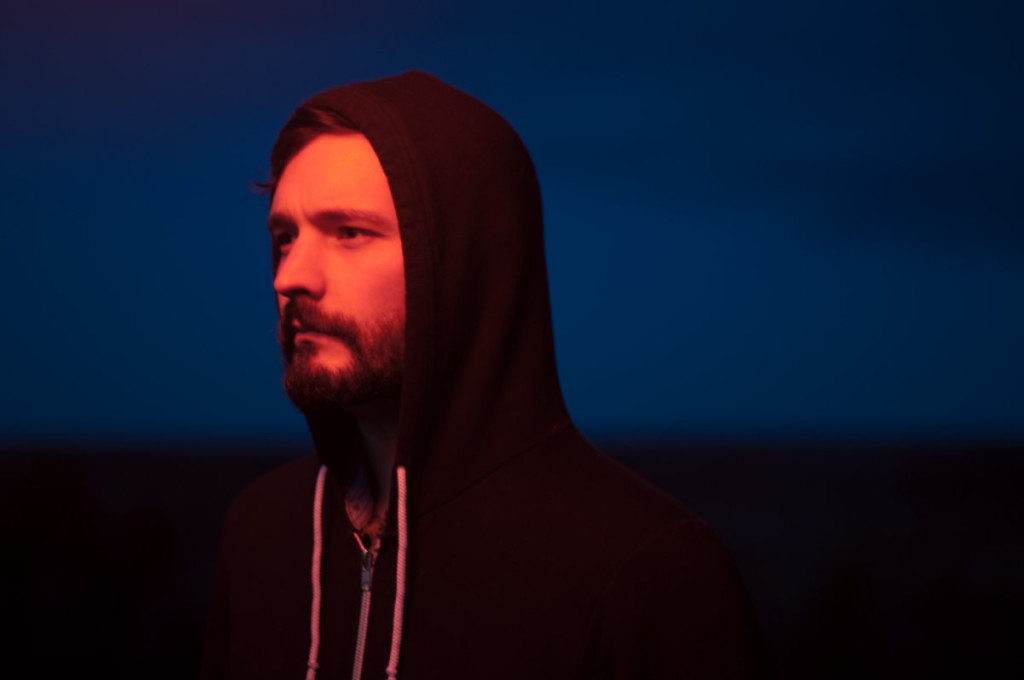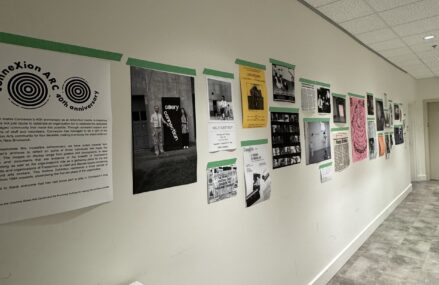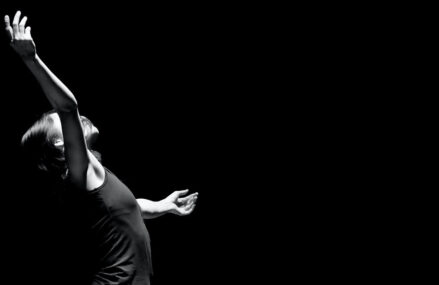How Andrew Sisk reconnected with his creative side.
Matt Carter | @m_j_c73
 “I got to a point where I thought I had lost it. I thought maybe I wasn’t an artist anymore.”
“I got to a point where I thought I had lost it. I thought maybe I wasn’t an artist anymore.”
That’s how Andrew Sisk found himself feeling as he struggled to write the follow-up to his 2012 album Treelines. His life had changed a lot since that release, his first solo album since ending his popular performance ensemble, Share, after three albums and lots of touring.
Now living in Montreal with his partner, teaching full-time and helping raise their son, Sisk found himself in new territory with a new set of emotional influences to figure out. The biggest challenge he faced was trying to reconnect with his songwriting – a skill he’d practically taken for granted after years of writing and performing.
After a frustrating eighteen-month struggle to write music again, the cure for his writer’s block eventually revealed itself in two very unlikely forms – Bossa Nova music and Canadian politics – a combination that would eventually lead to the creation of one of his most ambitious recordings to date, Arcticalia.
“Bossa Nova kind of saved me,” said Sisk, whose chance purchase of a João Gilberto reissue eventually led to an obsession with its distinct Brazilian sound. “I found the first of three reissues at a Montreal record store and for whatever reason, I bought it. Then I fell in love with it and bought the other two and essentially I listened to them non-stop for a long time. They’re amazing records. I can’t explain it. There’s so little happening instrumentally but there’s so much happening in the arrangement and the chords.”
Sisk credits the new sounds offered through these recordings in helping him to reconnect with music structures in a new way. It was the creative boost he needed and the musical inspiration he’d been looking for.
“I think it’s true that when you listen to music your ear can get tired,” he said. “And when you’re listening to the same kind of music all the time you can get bored easily. I stumbled upon these albums at the right time when I needed something to get me excited about music again. They were kind of a mystery to me as well because I would put these records on and have no idea how they were doing what they were doing, so I started learning these songs and these chord progressions and was just blown away.”
With his mind once again exploring music, Sisk soon discovered his lyrical direction had also taken an unexpected turn. Instead of looking inward or sharing poetic observations on life as he had in the past, he chose instead to release a growing tension he’d been ignoring.
“I tended to be a lot more guarded with lyrics in the past and hide things in metaphor and allegory,” he said. “Writing this album was more of a ‘I think this’ type experience. I decided I just had to write about what I was actually thinking about and caring about.”
At the time, Quebec’s Charter of Rights and Freedoms was centre stage in the news, alongside the overtly conservative, right-wing national government that had taken shape under our last prime minister. For the first time in his writing career, Sisk felt compelled to address his contempt for what was happening to our country.
“I was really frustrated with the political situation in Quebec where I live,” he said. “Things where feeling hyper-racist, not unlike the things we’re seeing in the Republican debates in the United States right now. That was happening in Quebec where I live. That was a big element, but there were also just a lot of frustrating things happening with Quebec sovereignty and then Stephen Harper on top of that. How could you blame anyone for wanting to break from the rest of Canada with what was happening? At the time, I was watching Harper ignore all the warning signs and do so many things that I completely disagreed with.”
Armed with a renewed musical outlook and his frustration with the state of the country as a whole, Sisk quickly amassed enough material for a new album. He assembled a group of trusted musicians and sent them his latest demos.
Arcticalia was recorded over three days in December 2014 and released the following May.
“I felt a need to get it out before the election because I wanted it to somehow influence someone to vote,” he said. “I get frustrated sometimes that I’m not doing enough to make the world a better place and I often wonder what I can do to make it better. That whole album was like a therapy for me. I got to feel productive in the catharsis of creating something positive out of something negative.
“I’ve never been so proud of an album, I think because it was so honest and so revealing. For a long time I just didn’t want to write about things like my family or my environmental or political beliefs. I felt like that was that was not a place I could go to comfortably.”
In Brazil, Bossa Nova was once the most popular form of music. During the 1970s when people started hearing American rock and roll, they started mixing the two and it became a genre known as Tropicalia.
“It dawned on me that I was writing a political record influenced by Bossa Nova during the coldest Canadian winter I’d ever experienced,” said Sisk, “so instead of Tropicalia, I decided to call the album, Arcticalia.”
Sisk seems to have made peace with his creative muse. Recording for his next album recently wrapped up over the holidays, almost exactly one year after Arcticalia was recorded. He used the same musicians and recorded in the same studio, but promises to be a bit more optimistic this time around.
“Arcticalia was me in a really dark place,” he said. “The thing I found so frustrating with the last government was the ignorance and the complete lack of acknowledgment for the problems that were so obvious. It just felt disrespectful. I wondered how Stephen Harper could be a father and not do anything to address climate change. I feel like Justin Trudeau has to go look at his small children everyday day and think, ‘I’m literally in charge of saving your future’. At least now we have an acknowledgement of climate change, an acknowledgment of how we have treated native people – especially native women – and I think getting these issues out into the open is a big step.”
With a new album in the works and a few other projects up his sleeve including a full-length Coco et Co. album and a new endeavour inspired by his project The Passing of the Buffalo, it’s safe to say he’s once again found his stride. Welcome back Mr. Sisk.
Andrew Sisk performs at The Playhouse January 21 and at the Charlotte Street Arts Centre January 22 as part of the Shivering Songs Festival.
For full festival information, please visit www.shiveringsongs.com
All things Sisk can be found here.




